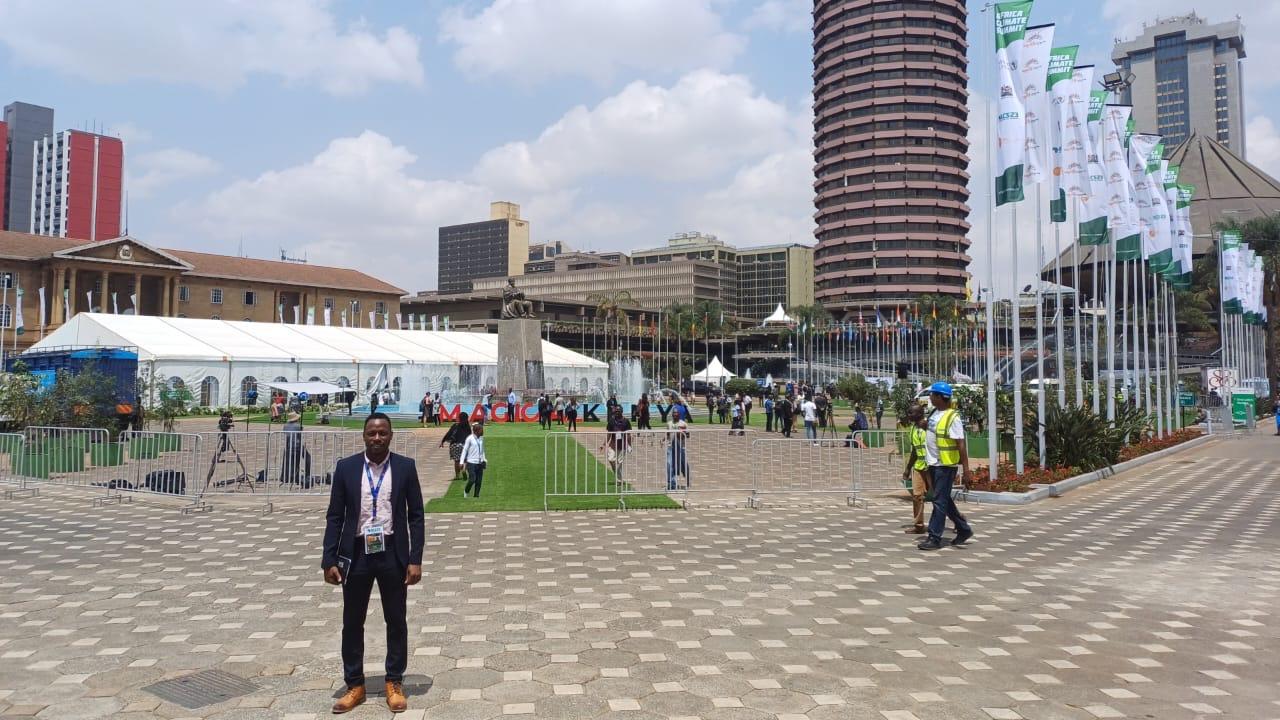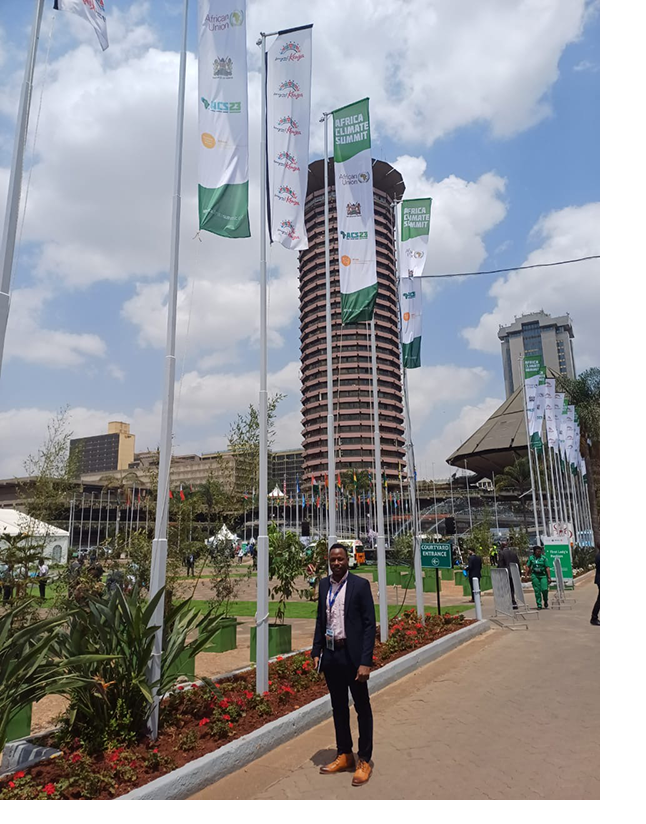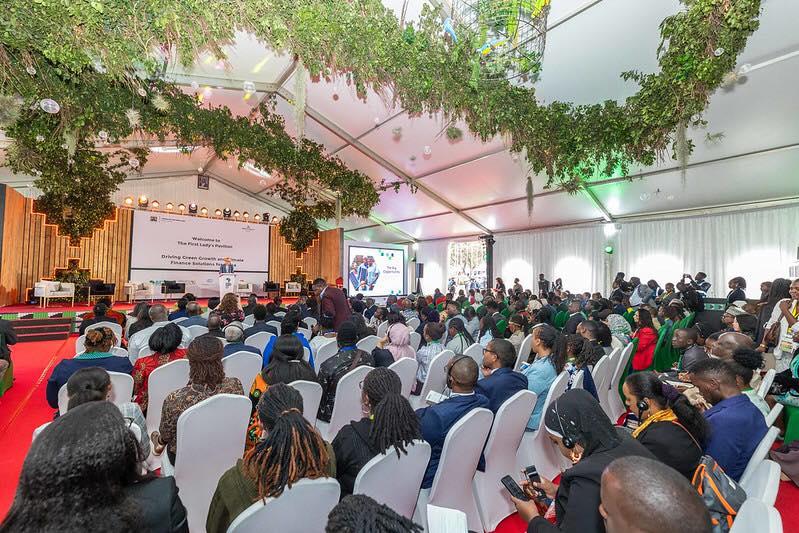The Road to COP28 Runs Through Africa

Smith School researcher Tonny Kukeera explores how the Africa Climate Summit is creating a new path to sustainable development.
The Africa Climate Summit in Nairobi was, in the words of an enthused attendee, like the Great Gatsby – “everything is huge and great.” Thousands gathered from across the world to chart a new climate-compatible course for the African continent. The crowds, pavilions, high-level speakers and excitement gave the event a palpable sense of momentum.
In his opening address, the Kenyan President and summit host H.E. William Ruto declared that
Climate action is green growth [....] Tackling climate change solves the complex issues we're facing.
Despite healthy skepticism around lofty political rhetoric, a spirit of sincerity carried through many leaders’ speeches. For instance, most financial pledges targeted specific sectors rather than vague climate commitments. If anything, this event could signify a potential turning point toward tangible climate solutions for Africa.
Key themes

Importantly, leaders acknowledged that each country needs a tailored solution, specific to their context. In Africa, some areas have more access to electricity than others (ranging from 7.7% to 99%). The areas with least access to electricity face significant economic losses when climate impacts occur. These losses can be as high as 5% of their overall economic growth. Fairness and justice are crucial for the development of climate solutions. The African Leaders Nairobi Declaration emphasised the need to fossil fuel “phasing down”.
Speakers highlighted the importance of Africa taking centre stage in climate debates. Africa has a wealth of resources, including 60% of the global renewable energy resources, 40% of crucial minerals for a green energy transition, and two-thirds of arable land. Africa also has the youngest workforce and immense potential for carbon storage. However, to fully unlock these resources, there is a need for substantial investment, a recurrent theme across the summit.
The Critical Role of Finance
Sustainable Finance was the central focus in 90% of the panels with more than 1000 mentions recorded. This puts finance in the spotlight and highlights its indispensable role in developing countries' climate efforts, especially in Africa. Without adequate funding, climate progress stalls. However, attracting investment requires policies that provide confidence.
A recent case study from the Smith School explored the potential for Zambia’s Constituency Development Fund (CDF) to mobilise external funding into projects that contribute to sustainable development, underscoring the importance of such initiatives. The energy sector illustrates this clearly. Achieving Sustainable Development Goal 7 - universal access to affordable clean energy - enables broader development but has lagged due to financing hurdles and unfavorable policies. Reducing systemic inefficiencies and risks by creating an enabling environment boosts investor confidence. “Money goes where it finds a home”, one speaker noted.
At the summit, around $23 billion was pledged for climate projects across energy access, mitigation efforts, resilience and emissions trading. This is a starting point and putting this finance to work will require a review of governance frameworks to provide assurance and allow climate funding to thrive. As with broader climate action, tackling climate change through finance requires both targeted funding and changes in policy and governance.

The Energy Access Imperative
Mirroring the UN’s SDG7, the African Leaders Nairobi Declaration stressed electricity's role in Africa's development ambitions. Affordable access to energy remains a challenge, exacerbated by climate change. The summit's energy discussions revealed that powering prosperity necessitates new approaches.
While progress on integrating national grids through the African Power System Masterplan is essential, electricity pools depend on robust country-level grids. Speakers emphasized scaling up decentralized renewables like mini-grids to strengthen these national systems and drive localized development. Mini-grids can enable productive uses such as irrigation and cold storage, helping secure food systems and improving socioeconomic conditions of rural communities - energy deficiencies cause African farmers to lose nearly 50% of their produce. As former Nigerian VP Prof. Yemi Osinbajo argued, expanding decentralized renewable energy systems is imperative to end energy poverty.
Experts identified three priorities to scale up decentralized renewables:
- Financing: Despite Africa's renewable potential, only 2% of clean energy investment has flowed to the continent. Decentralized renewable energy systems such as mini-grids require infrastructure-style financing. Engaging local financial institutions is critical.
- Policy: Integrated, cross-sectoral policies reduce risks and spur sustainable business models, unlike siloed approaches.
- Partnerships: Collaborative platforms enable regulators, companies, communities and investors to maximize synergies.
There have been conversations on Africa leapfrogging the traditional electricity grids, as happened in the telecom sector. These narratives tend to solely focus on the technical aspects. There is a need to think about the market structures and the policies that can lay the foundation for the leapfrogging. Overall, a systemic perspective is essential for sustainable solutions.
The Road to COP28
The Africa Climate Summit highlighted the scale of opportunities that exist on the continent but there’s more work ahead. Transformational leadership must urgently leap to action, helped by enabling financial flows and policies. Regional cooperation mechanisms being strengthened, through for example the intercontinental masterplan, hold promise but the electrification challenges existing at country level need to take center stage. Crucially, decentralized renewables can power climate-compatible local development while strengthening national grids.
COP28 in Dubai is the next milestone to build on Africa's priorities. The African Leaders Nairobi Declaration on Climate change and call to action provides a compass. The summit gave a glimpse of the vast possibilities but also the challenges of achieving sustainable development. With diligence, collective will and action, Africa can blaze a trail to a prosperous, climate-compatible future.
